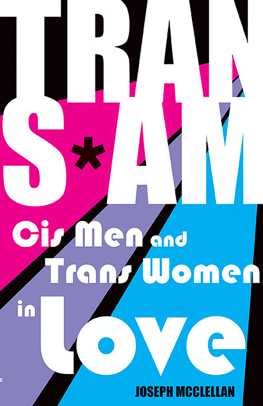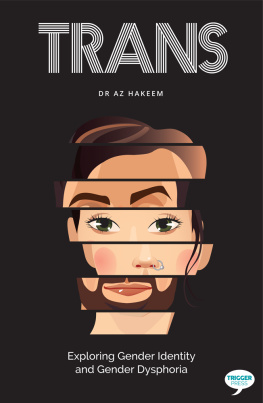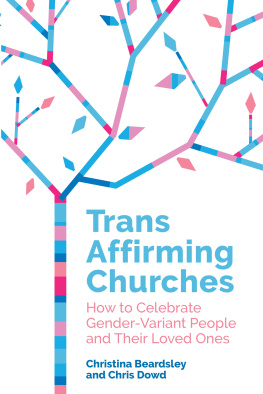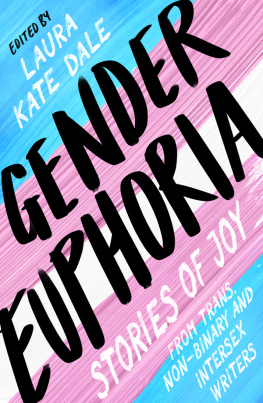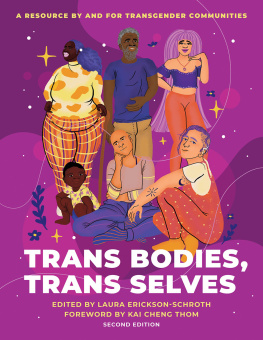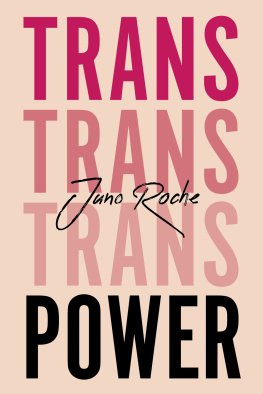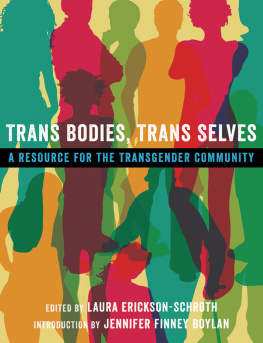Joseph McClellan - Trans*Am: Cis Men and Trans Women in Love
Here you can read online Joseph McClellan - Trans*Am: Cis Men and Trans Women in Love full text of the book (entire story) in english for free. Download pdf and epub, get meaning, cover and reviews about this ebook. year: 2017, publisher: ThreeL Media; Stone Bridge Press, genre: Home and family. Description of the work, (preface) as well as reviews are available. Best literature library LitArk.com created for fans of good reading and offers a wide selection of genres:
Romance novel
Science fiction
Adventure
Detective
Science
History
Home and family
Prose
Art
Politics
Computer
Non-fiction
Religion
Business
Children
Humor
Choose a favorite category and find really read worthwhile books. Enjoy immersion in the world of imagination, feel the emotions of the characters or learn something new for yourself, make an fascinating discovery.
- Book:Trans*Am: Cis Men and Trans Women in Love
- Author:
- Publisher:ThreeL Media; Stone Bridge Press
- Genre:
- Year:2017
- Rating:3 / 5
- Favourites:Add to favourites
- Your mark:
Trans*Am: Cis Men and Trans Women in Love: summary, description and annotation
We offer to read an annotation, description, summary or preface (depends on what the author of the book "Trans*Am: Cis Men and Trans Women in Love" wrote himself). If you haven't found the necessary information about the book — write in the comments, we will try to find it.
Trans women - assigned male at birth and later transitioned into a female gender - are recently in media because of celebrities and controversial legislation. Therefore cis men - who identify with a masculine gender they were assigned at birth - are now called upon to share their experiences as lovers of trans women. Using theory and personal anecdotes, the author questions the codes that cis men and trans women use to interpret their own and others gendered and sexed bodies.
Joseph McClellan , Assistant Professor, Department of Politics, Philosophy, and Economics, Asian University for Women, Chittagong, Bangladesh, has taught philosophy, Buddhism, and gender studies, and translated and introduced contemporary French philosopher Michel Onfrays A Hedonist Manifesto: The Power to Exist.
ReviewAs a trans woman who has dated almost exclusively cis straight identified men I have been frustrated with how their desire for trans women has existed largely in the shadows, deeply stigmatized. I have longed to see more men who are attracted to, date, have sex with and/or are in relationships with trans women to come forward and speak the truth of those attractions, encounters, experiences and relationships. Joe McClellan in Trans*Am does just that and much more. He shares his lived experiences as a transam as part of a rigorous philosophical take down of essentialist notions of gender and sexuality and how we assign meaning. Laverne Cox, actress co-starring in Orange Is The New BlackTrans*Am offers a fresh look at worlds of love, attraction, and bodies; challenges socially accepted notions of what is right; and seeks to free unconventional genders and sexuality from destructive stigmas. The author courageously and critically contributes to a long-overdue conversation taking to task the social constructs that have proven too painful to too many for too long. Trace Lysette, actress co-starring in TransparentAn important contribution to an important debate. Jonathan Kemp, author of The Penetrated MaleIve always felt that I needed to identify with a particular sexual orientation. But McClellans book explains why this isnt necessary by drawing on Buddhist philosophy. He even shows that the tendency to identify can get in the way of enjoying sex. Other animals enjoy it just fine without words, and so should I. Michael Osofsky
Joseph McClellan: author's other books
Who wrote Trans*Am: Cis Men and Trans Women in Love? Find out the surname, the name of the author of the book and a list of all author's works by series.

